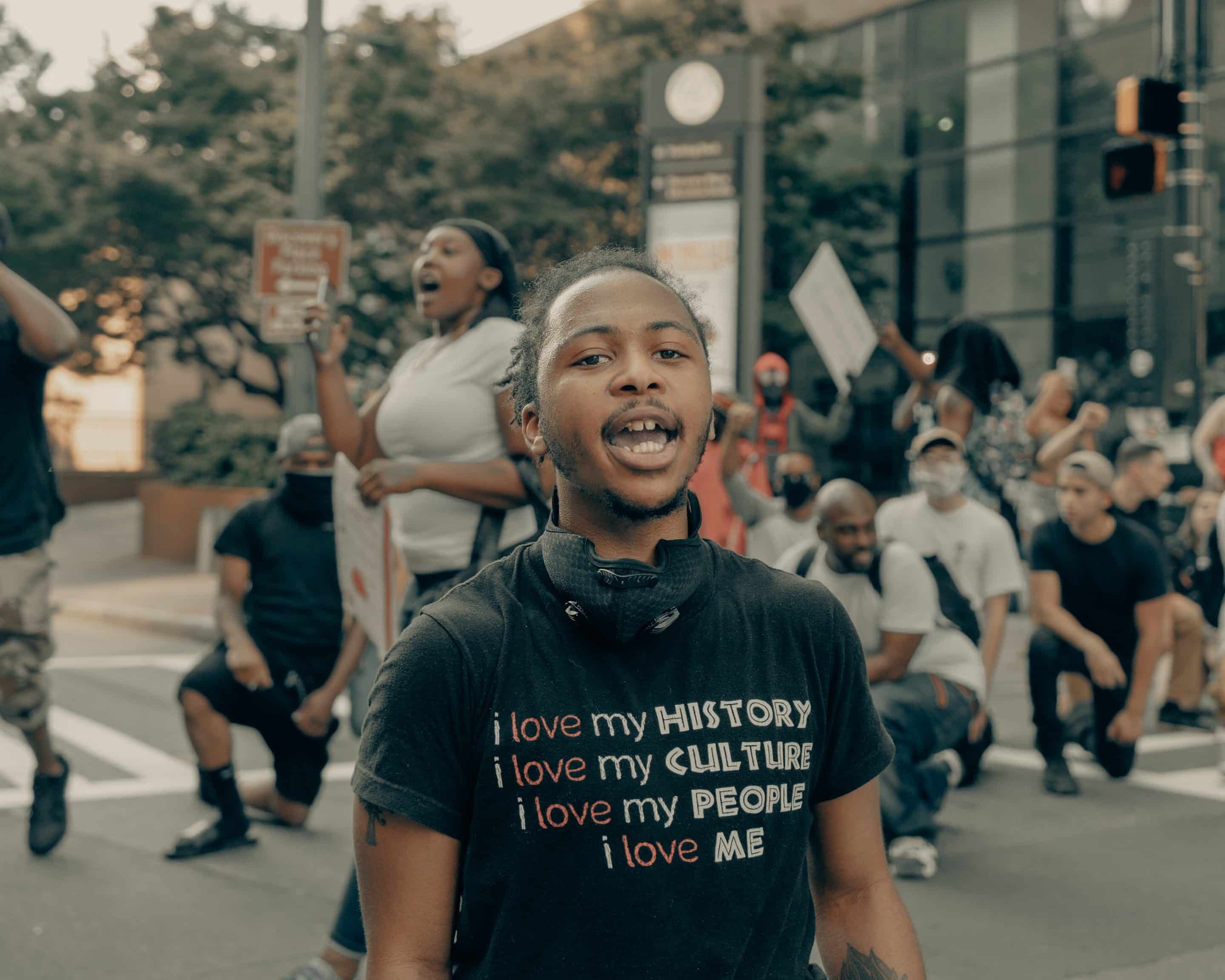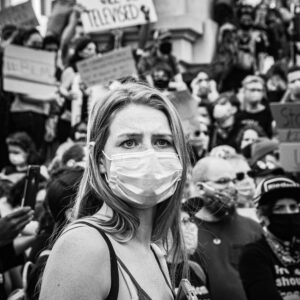Article shared by the Democracy Day project, written by Kési Felton for Better to Speak
In this fight for democracy, I believe it’s important to first pause and take a step back to truly evaluate how the promise of said democracy has historically and continuously failed Black Americans and Black folks throughout the diaspora living in America or other countries.
Many of us and our ancestors have worked, struggled, fought and died under the guise of challenging the discrepancy between the intended outcomes versus the actual consequences of the American exceptionalism project. In reality, Black folks have been forced into a perpetual cultural narrative and lived experience of fighting to protect some great democracy, when we are fighting to simply live, thrive and be.
The politicization of that struggle – from voter engagement initiatives to grassroots organizing – is more a reflection of what we are willing to do to protect and preserve our humanity, more than it is to protect and preserve American democracy.
Perhaps the American ideal – specifically the story of how we’ve journeyed towards it – should not ask that we pretend we are working to achieve a vision of collective freedom (set forth by slave-owners-turned-founding-fathers), or that we burden ourselves with the seemingly insurmountable task of forcing ourselves into an ideal that was not created with all of us in mind, to begin with.
As I reflect on the question – of what to the Black American is “democracy”? – I’m working to reframe that goal and the journey towards it to center my love, care and commitment to people and community, and to engage politics as the system that codifies that love and commitment.
And as a young journalist and storyteller, my goal is to keep that top of mind when uplifting or framing stories that historically have done the reverse – center politics, its processes and power, over the humanity of the people and communities it is meant to serve.
According to AP News, a recent study found that 79 percent of youth and young adults (16-40) consume the news daily, while 32 percent actually enjoy following the news.
71 percent of survey participants said they get their news updates through social media – mostly from traditional news sources (45 percent) followed by platforms like YouTube and Instagram (37 percent and 34 percent, respectively), and TikTok, Snapchat and Twitter (29 percent, 24 percent and 23 percent, respectively).
News media’s aspiration towards combatting threats to democracy is being undermined by a general distrust of news media organizations and the politicians they cover, digital fatigue (understandable given the difficult issues and events we see on loop through the 24-hour news cycle and social media updates), misinformation from a lack of credible information and sources, and intentional disinformation campaigns often targeted to members of Black communities (9 in 10 survey participants said misinformation is a problem when it comes to newsworthy issues and events, with 6 in 10 saying that it’s a major problem).
Additionally, Black folks are still working to find coverage that accurately and fairly represents our communities in a way that truly centers our voices and lived experiences. Even with the rise of Black-created-and-led media platforms, those organizations and institutions are not given the kind of financial resources they need to support Black journalists and remain sustainable.
From the report shared on AP-NORC:
Millennials and Gen Z are feeling digital fatigue and have adopted different tactics to combat it. While 9 in 10 Millennials and Gen Z report being online more than two hours a day, 3 in 10 report feeling worse the longer they are connected. Seventy-nine percent report doing something in response. About half (47%) say they pay attention to the way certain products try to keep them engaged, 27% try to set limits on the time they spend online, and 23% use apps or settings to track their time.
Trust in the press is low, but so is trust in social media. Local news fares better than national. Only about a quarter of 16- to 40-year-olds have a positive view of the news media generally or national news outlets particularly (23%). Trust in local news media, while not great, is higher. About a third (35%) have favorable attitudes toward local media outlets. But when we dig deeper, there are signals of higher confidence. For instance, most Gen Z and Millennials find local TV stations or their websites (53%), local newspapers in print or online (59%), and even national newspapers in print or online (54%) as completely or very reliable when getting “hard news” topics. The numbers are similar for “news you can use” topics such as news about health or products.
Many believe the media fails to accurately cover communities of color and immigrants in America. Nearly half (49%) believe media coverage of immigrants is slightly or totally inaccurate, and a similar percent say the same about Black Americans (48%) and Hispanic Americans (45%). Coverage of white Americans is viewed more positively, though 36% still consider it mostly inaccurate.
Respondents equally attributed the flourishing of misinformation and disinformation to social media companies and users, politicians, as well as the media. However, young people’s media literacy (as well as the role of young journalists and media-makers) shouldn’t be minimized.
A study from Poynter, YouGov, and Google found that youth and young adults (18-25-year-olds) practice better media literacy habits like “lateral reading,” which refers to searching for and reading multiple articles from various sources about the same topic to ensure the information is accurate, in a report from Technology Review.
Speaking as a young Black journalist, even with academic training from Howard University – which has launched programs such as the Howard University Digital Informers research project and Center for Journalism & Democracy – that doesn’t absolve me from being susceptible to seeing misinformation and amplifying it haphazardly.
However, when discussing misinformation and my personal and professional engagement with it as a threat to democracy, it brings me back to the (rhetorical) question of if the historical mistrust and fragmented relationship between the press and Black communities has been adequately addressed and mended, to begin with.
As we inch closer to the 2022 midterms elections, and as we continue to examine the systemic harm and disenfranchisement this country has caused Black and brown folks – I’ll say again, what to the Black American is “democracy”?
When making calls-to-action, or waxing poetic about the threats we are currently facing as a country and within our local communities and corners of the world, I can’t help but think about the innate disappointment that Black people have been left with by the promise of American “democracy.”
Instead, I do believe that rather than it being a binary, either-or conversation – Black liberation or American democracy – everyone who says to be committed to that ideal must understand and include Black liberation and the liberation of all marginalized groups as a primary objective of that goal.






